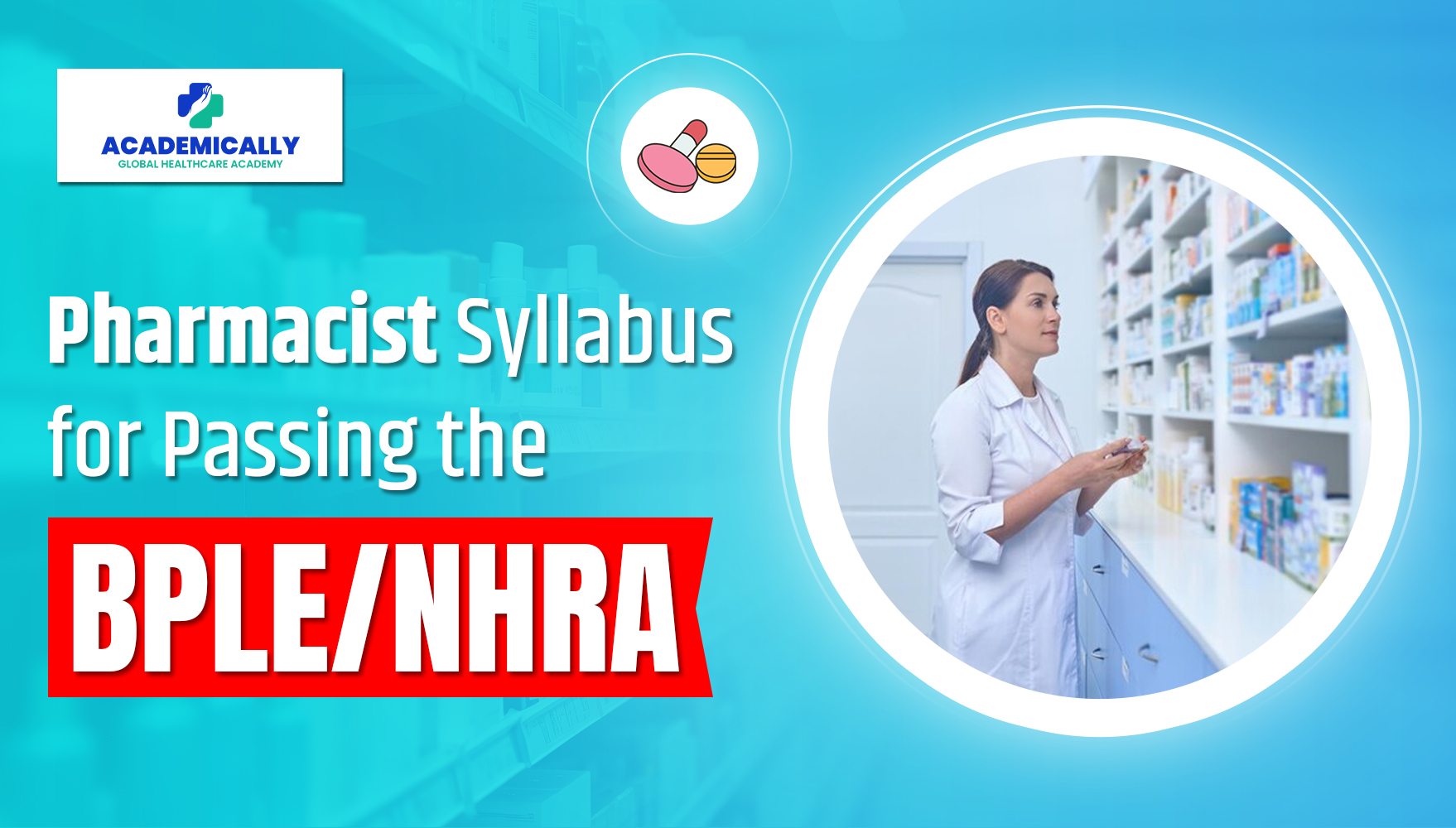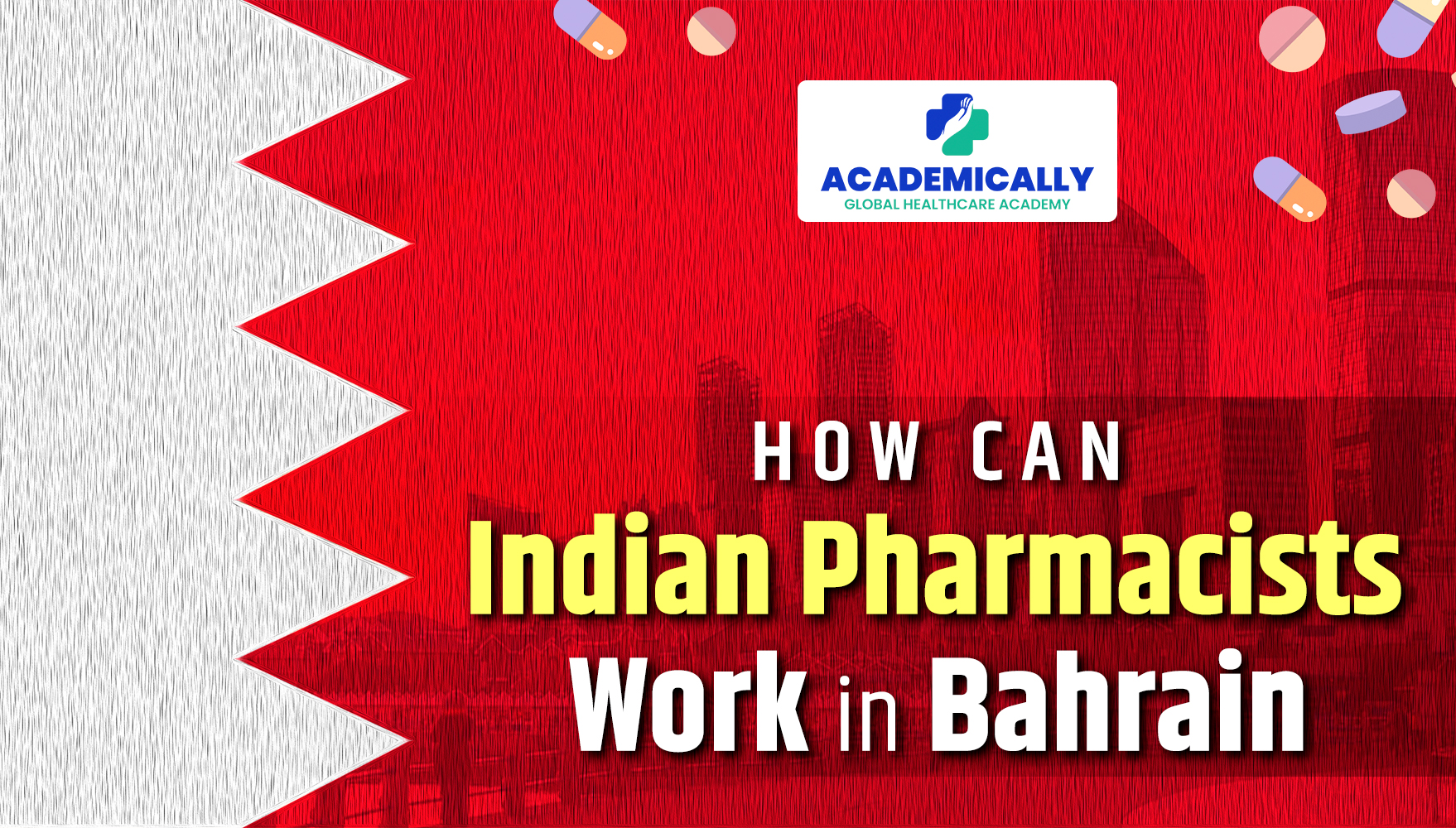What Is the BPLE?
The Bahrain Pharmacy Licensure Examination (BPLE), also known as the NHRA (National Health Regulatory Authority) is a compulsory test that every international pharmacy graduate has to pass to obtain a pharmacy license in Bahrain. The BPLE or NHRA is conducted by the government of Bahrain to make sure that overseas pharmacists meet the country’s healthcare standards. It’s your chance to prove your skills in pharmacy practice and start your career in one of the most welcoming countries in the Gulf, that is, Bahrain.
BPLE (NHRA) Detailed Syllabus
Here's a detailed breakdown of the syllabus to help you prepare thoroughly:
1. Social, Behavioral, and Administrative Sciences
This section looks at your ability to interact with patients and work within the healthcare system. It covers topics like patient counseling, ethical responsibilities, and healthcare policies. The focus is on how well you communicate and make responsible decisions while working as a pharmacist.
2. Pharmaceutical Calculations & Compounding
This is all about numbers and preparation. It tests your ability to calculate medication doses correctly and create customized prescriptions for patients. Whether it’s adjusting a dose for a specific need or mixing ingredients accurately, this section makes sure you’re confident in handling these tasks.
3. Pharmaceutical Sciences
This is the science behind how medications are made and work. It covers drug formulations, delivery systems like tablets or injections, and ensuring medication quality. This section is to help you understand the technical side of pharmacy, like why a tablet dissolves a certain way or how a medicine gets absorbed into the body.
For this you should thoroughly review the pharmacokinetics and pharmacodynamics of different drug classes and study the basics of Good Manufacturing Practices (GMP) and their role in quality assurance.
4. Clinical Sciences
This section checks how well you can use your clinical knowledge to care for patients. It focuses on understanding drug interactions, side effects, and how medicines work in the body (pharmacokinetics and pharmacodynamics).
You'll need to know how to create care plans specific to the patient and make evidence-based recommendations. To prepare for this subject, you should focus on therapeutic drug monitoring and study real-life cases.
Make sure you're familiar with managing chronic conditions like diabetes and hypertension by following the latest treatment guidelines.
5. Pharmaceutical Care & Disease Management
This subject is the most important part of the exam, making up 45% of the total. It focuses on patient care and how you handle different medical conditions. You’ll need to know about treating chronic diseases like asthma and heart conditions, using therapeutic guidelines, and helping patients stay on their treatment plans.
To prepare well for the Bahrain Pharmacist Licensure Exam, make this section your number one priority. Study the latest treatment guidelines and stay updated with any new clinical rules.
6. Basic Biomedical Sciences
This section lays the groundwork for understanding human health and disease. It focuses on foundational subjects like anatomy, physiology, and microbiology, which are important for learning how the body works and how diseases develop. You'll learn about the structure and function of human organ systems, the basics of microbiology (including how pathogens cause infections), and the physiological reasons behind health and illness.
So Why Should You Choose Bahrain as Your Ultimate Destination as a Pharmacist ?
Apart from its amazing lifestyle and tax-free salaries, Bahrain’s pharmacy sector offers opportunities across hospitals, community pharmacies, and research facilities. The growing demand for skilled pharmacists make Bahrain the best destination for overseas graduated pharmacists to migrate here and start their careers. Let’s have a more detailed look at the perks pharmacists enjoy in Bahrain;
1. Great Earning Potential
Pharmacists in Bahrain enjoy excellent salaries, starting from ₹1–1.5 lakh per month. Plus, the income is tax-free, which means more money in your pocket every month.
2. High Standard of Living
Bahrain is known for its modern infrastructure, excellent healthcare, and welcoming community. The quality of life here is luxurious, making it a great place for you and your family.
3. Other Benefits
Pharmacist jobs in Bahrain come with attractive benefits like free accommodation, airfare allowances, and one fully paid month of vacation every year.
4. Balanced Lifestyle
Jobs in Bahrain follow a strict rule to make sure you maintain a healthy work-life balance. You’ll have enough time to relax and enjoy the amazing culture, all while moving forward in your career.
5. Career Growth Opportunities
As a pharmacist in Bahrain, you'll have access to the latest medical technologies and ongoing training programs, helping you sharpen your skills and grow professionally.
6. No Language Barrier
Unlike many other countries, Bahrain doesn’t require pharmacists to pass an English proficiency test.
Conclusion
So there you have it. These are all the things you should know before gearing up to prepare for the BPLE/ NHRA, these are all the subjects you’ll need to study for. Make sure to start your preparation early to leave time for mock tests and sample papers, this will help you pass the BPLE/NHRA on your first attempt.
Click here for a free consultation with our experts regarding the same.






